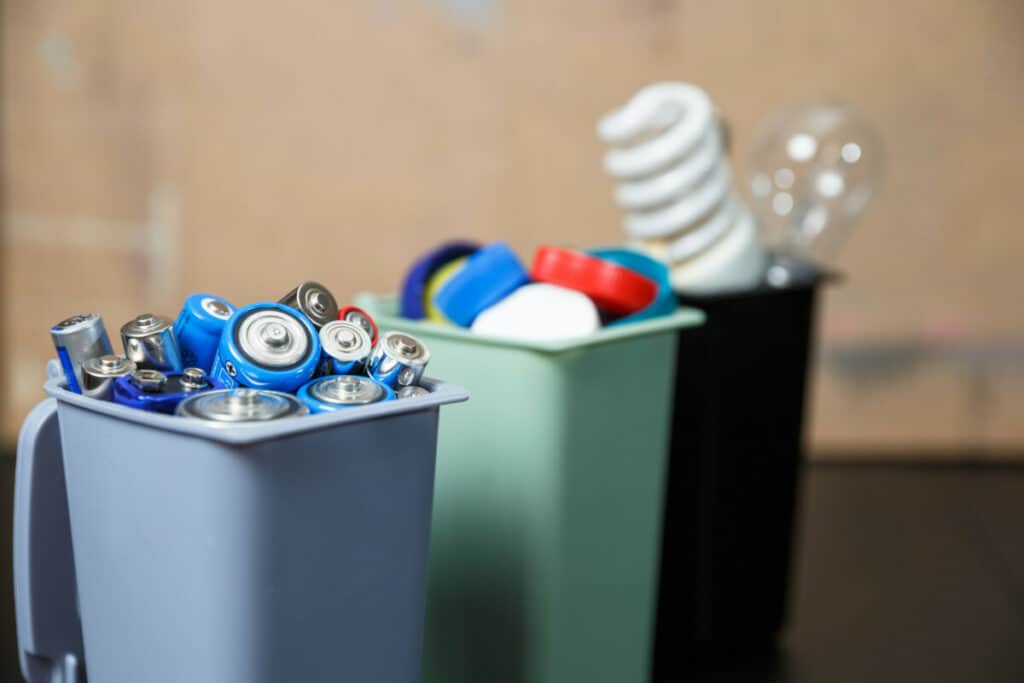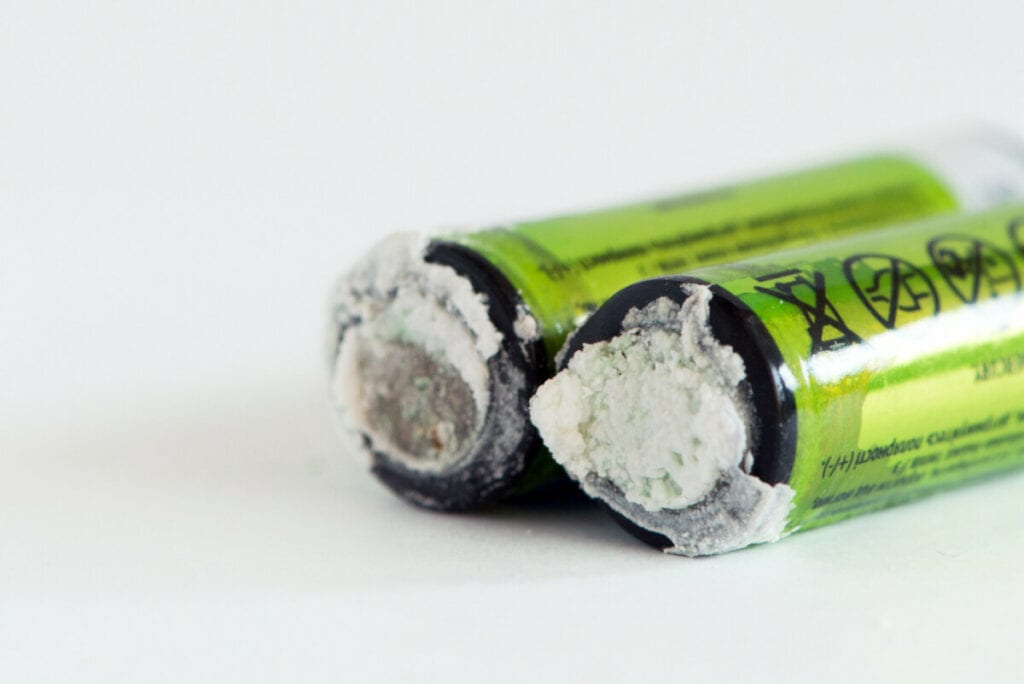
In a world that runs on electricity, we use a lot of batteries. It is important to know how to properly and legally dispose of dead batteries.
Throwing away most types of batteries is illegal. Batteries contain hazardous substances that can be dangerous to handle. Depending on the state, there may be government-run hazardous waste recycling or the battery manufacturers may be required to offer or fund battery recycling.
The laws about disposing of batteries are different depending on the state and the type of batteries. You need to know how you are supposed to dispose of your dead batteries.
Safety Issues
Batteries contain a lot of hazardous substances and chemicals. Dead batteries need to be disposed of properly so these chemicals don’t harm the environment or people. Some batteries are also potentially combustible, so disposing of batteries incorrectly can cause fires and damage. The proper disposal of batteries can help protect people and property from injuries or damage.
Disposing of Batteries
Battery disposal is funded and/or run by state/local government, recycling/waste management facilities, or the battery producers. Some states have their own laws for battery disposal, while others only use the federal requirements. For example, in Wyoming, retailers must accept an equal quantity of used batteries as those they sell. In South Dakota, landfills cannot accept batteries, but the batteries must be delivered to retailers. In West Virginia, it is illegal to dispose of batteries in a solid waste landfill.
The federal requirements for battery disposal are based on the types of batteries and their contents. Most types of batteries are considered Universal Waste and must be managed as such. The Universal Waste Rule requires the disposal of Ni-Cd and Pb batteries to be sent to battery recyclers or hazardous waste collectors.
Make sure that you do research into the requirements for disposing of batteries in your state/community. The laws are different in different places, so it’s important that you understand how you need to dispose of your batteries in your location and which recyclers or collectors can take these batteries off your hands. Here is a great resource for finding the best disposal options in your area based on local law.
Handling and Disposing of Different Types of Batteries
Different types of batteries need to be handled differently when you are disposing of them. Some can be thrown in a household trash can. Some battery recycling facilities or hazardous waste collectors will accept some types of batteries, but not others.
Single-Use Batteries
One type of single-use battery is an alkaline/zinc-carbon battery. Alkaline or zinc-carbon batteries are the most commonly used types of batteries. They are the ones you put in your remote control or your fire alarm. These types of batteries are often safer to dispose of than others, and some communities don’t have any disposal requirements for them. Depending on your location, it may be legal for you to throw these batteries away instead of taking them to a battery recycler or hazardous waste collector.
Button-cell or coin batteries are small, flat, and circular batteries that are used in watches and calculators. They are typically made of lithium metal. These batteries, which are small enough to swallow, must be kept out of reach of children. Button-cell or coin batteries must be taken to recyclers or collectors.
Lithium batteries are different from alkaline batteries because they often come in different shapes so they can be used in specific types of equipment. Button-cell or coin batteries are often lithium batteries. Lithium batteries must be disposed of by a recycler/collector. They also need to be kept in separate bags from one another or covered with tape on the battery terminals (ends where the electricity flows in an out of the battery). If lithium batteries touch the ends, they may spark, which is a fire hazard. Make sure to check the label on the battery to see if it is a lithium battery so you may dispose of it correctly.

Rechargeable Batteries
Some rechargeable batteries can be easily removed from the device that they are attached to; some are sold as normal batteries that can be reused. These types of batteries should be disposed of separately from the device that they are used in. They should be treated the same as lithium batteries: placed in separate bags or taped over at the battery terminals.
Many devices, such as laptops and phones, have rechargeable batteries built-in. These are difficult to remove and should typically be disposed of with the rest of the device. There are companies that specialize in the recycling of electronics. You should bring the device to a certified electronic recycler, or you may be able to use a hazardous waste collection program.
In general, rechargeable batteries should never be thrown away in regular trash or recycling. Always make sure to find a battery recycler or hazardous waste collector that will dispose of the batteries properly.
Car Batteries
There are a couple of types of car batteries. Lead-acid batteries are typically used in cars, boats, motorcycles, and other large vehicles. They are also used as backup power or power sources for equipment that cannot be shut down in the event of a power outage. Lead-acid batteries are very dangerous to dispose of, as they contain up to 18 pounds of lead and a gallon of sulfuric acid. You must never put a lead-acid car battery in the trash or recycling. Always take it to a battery recycler or hazardous waste collector.
Some car batteries are lithium-ion (Li-ion). These are typically used in electric or hybrid vehicles or used for energy storage systems. Some Li-ion batteries may not be removable; this means that many battery recyclers may not collect them because they are attached to a car. You should contact the dealer or company from which you purchased the car or device. They will typically have options for disposal that you can use.
There are websites that can help you find a nearby battery recycler or hazardous waste collector. You can find locations to dispose of different types of batteries by choosing the type of battery and entering your zip code.
Related Topics:
If you like the article above, here are some other similar articles you should check out!
Recycling Laws in Washington: What You Should Know
